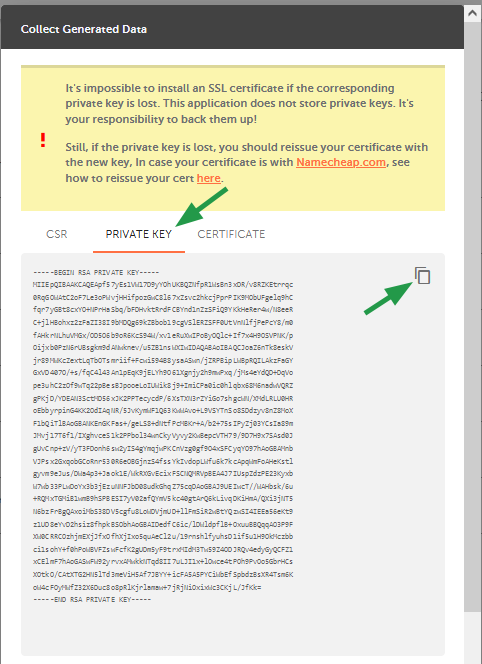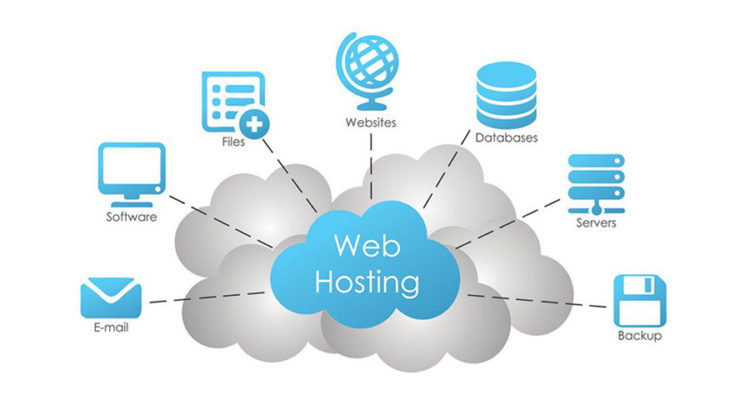
A web server is an computer that hosts files (such HTML documents, images and CSS stylesheets), for a particular website. The server then delivers these files to a user's browser, per request, using HTTP technology.
A typical Web server is comprised of hardware components and software. Hardware includes a computer server and a device for storing data, like a hard disk. The software component consists of a set components that controls how the hosted contents are delivered.
Static and dynamic web servers are available. Static Web Servers send files to clients as-is, whereas Dynamic Web servers update the files when a request is made from the server's databases.
Google has built a lot of its own servers. The company's director for engineering, Ben Jai, said the company uses a completely different approach to infrastructure in data centers than most other companies. Google, for instance, does not rely on huge machines to provide electricity in its data center--it uses batteries that automatically kick in and quickly in case of an emergency.

Google is able to lower its energy costs thanks to the battery's design, he added. The company also has a system to calculate its Power Usage Effectiveness (PUE) every 30 seconds, which allows engineers to develop a predictive model that predicts and adjusts cooling to conserve energy.
Google also saves energy by using a "defense-in-depth" strategy, which includes firewalls and access control lists that are industry standard. This protects its network against malicious activity. These measures are meant to detect and remedy destabilizing circumstances and to reduce potential attacks.
Its servers also benefit from proprietary systems that check for binary changes and restore them to the standard, unmodified state if a security breach occurs. Google's self-healing, automated mechanisms are crucial to its efforts to protect their networks from exploitation.
Google's computers, in addition to being protected by software that monitors and reports suspicious activity to the security team of the company, are also constantly monitored for suspicious activities. Google's server cannot be compromised by hackers from the outside.
Lastly, Google's computers are protected by specialized hardware that helps to identify and repair memory leaks and other issues that could lead to system failures. These devices use magnetoresistive sensor to determine how much memory of a computer is exposed, and reload it when necessary.

Google's proprietary internal internet, spread across 40 datacenters around the globe, is largely based upon proprietary and custom tools. These include a highly-secret distributed filesystem called GFS as well as Spanner platform, which moves and replicates load between its datacenters in case of traffic or equipment issues.
According to Google's own numbers, 1.8 billion active users rely on the search giant for at least 27 petabytes of storage. It is enough to store Google's entire database, which includes all user documents, photos and other information.
FAQ
Web development: Is it hard?
Although web development isn't easy, there are many resources online that will help you get started.
Just find the right tools, and then go through each step.
Many tutorials are available on YouTube and other platforms. There are also free online programs like Sublime Text and Notepad++.
You can also find many books in libraries and bookstores. Some of the most sought-after books are:
O'Reilly Media's Head First HTML & HTML
"Head First PHP & MySQL 5th Edition" by O'Reilly Media
Packt Publishing presents "PHP Programming: Absolute Beginners".
I hope you find this article helpful!
What is responsive web design?
Responsive web design (RWD), is a way to create websites that display responsively on all devices, including smartphones, tablets, desktop computers, laptops and tablets. This allows visitors to view the website on one device and access other features like buttons, navigation menus, etc. RWD is designed to ensure that a user can view a site on any size screen.
A website that sells primarily through eCommerce would be an example of this. You want your customers to be able to purchase products from your store, even if they are viewing it on a phone.
A responsive site will automatically adjust its layout based on the device being used to view it. It will appear the same as a regular desktop website if you view it on your laptop. However, if you're viewing the page on your phone, it will display differently.
This allows you create a website that looks great on any device.
What platform is the best to design a site?
WordPress is the best platform when it comes to designing websites. It has all the features required to create a professional-looking website.
These themes are simple to install and modify. You can pick from thousands of free themes that are available online.
You can also add functionality by installing plugins that allow you to do everything from adding social media buttons to adding forms and contact pages.
WordPress is very user-friendly as well. To modify your theme files, you don't need to be able to code HTML. You just need to click on the icon and choose what you want to modify.
Although there are many platforms out there, I prefer WordPress. It's been around since the beginning and is still being used by millions of people worldwide.
Do I choose WordPress or a web builder?
It is best to start small in order to establish a web presence. If you have enough time and resources, build a site. But if you don't have these resources yet, starting with a simple blog might be the best option. As you develop your website design skills, you can always add additional features.
You should first set up your primary domain before you begin building your first website. This will give you a pointer to which to publish content.
How do I choose the right domain name?
It is crucial to choose a great domain name. It is essential to have a unique domain name. People will not be able find you when they search your product.
Domain names should be short, easy to remember, relevant to your brand, and unique. In order to make your domain name memorable, people should be able to type it into their browsers.
These are some suggestions for choosing a domain.
* Use keywords related your niche.
* Avoid hyphens (-), numbers, and symbols.
* Don't use.net or.org domains.
* Don't use words that have been used before.
* Try to avoid generic terms like "domain" or "website."
* Check that it is available.
Statistics
- It enables you to sell your music directly on your website and keep 100% of the profits. (wix.com)
- It's estimated that in 2022, over 2.14 billion people will purchase goods and services online. (wix.com)
- Did you know videos can boost organic search traffic to your website by 157%? (wix.com)
- Studies show that 77% of satisfied customers will recommend your business or service to a friend after having a positive experience. (wix.com)
- The average website user will read about 20% of the text on any given page, so it's crucial to entice them with an appropriate vibe. (websitebuilderexpert.com)
External Links
How To
What is Website Hosting?
Website hosting refers simply to the place that people visit when they visit a website. There are 2 types.
-
Shared hosting is the cheapest. Your website files will reside on a server belonging to someone else. When customers visit your site, their requests travel over the Internet to that server. The server owner then forwards the request to you.
-
Dedicated hosting: This is the most costly option. Your website is hosted entirely on one server. There are no other websites sharing space on the server. Your traffic remains private.
Shared hosting is cheaper than dedicated hosting for most businesses. When you use shared hosting, the company that hosts the server gives you the resources to run your site.
Each option has its pros and cons. These are some of the major differences between them.
Pros of Shared Hosting
-
Lower Cost
-
Easy To Set Up
-
Frequent Updates
-
It is available on many Web Hosting Companies
You can get shared hosting for as low as $10 per monthly. This price often includes bandwidth. Bandwidth refers to the amount of data you can transfer across the Internet. You may have to pay extra for large amounts of data, even if your blog only contains photos.
Once you start, you'll quickly realize why you were paying so much for your previous host. The majority of shared hosts offer limited customer support. Their techs will occasionally walk you through setting up your site, but you're on your own after that.
It is important to find a provider that provides 24-hour support. They'll take care of any issues that come up while you sleep.
Dedicated Hosting Cons:
-
More Expensive
-
Fewer Common
-
Requires special skills
With dedicated hosting, you get everything you need to run your website. You won't have worry about whether your website is using enough bandwidth, or whether it has enough RAM (random-access memory).
This means that you will have to pay a little more upfront. But once your online business starts, you'll realize you don't need any technical assistance. You will become an expert in managing your servers.
Which Is Better For My Business, So Which Is Better?
The answer depends on what kind of website you want to create. If you only want to sell products, then shared hosting might be the best choice. It's very easy to setup and maintain. It's easy to set up and maintain, as you share a server with other sites. You will likely be updated frequently.
However, dedicated hosting can be a great option if you're looking to build a community around the brand. It allows you to focus on building your brand and not worrying about managing your traffic.
Bluehost.com has both. Bluehost.com provides unlimited monthly data transfer, 24/7 support, free domain registration and a 30-day money back guarantee.